Video Interviews
These interviews feature community college graduates (and near graduates) and first-generation students reflecting on their academic journeys in their own words. Each video offers insight into the motivations, challenges, and decisions that shaped their experience—from first-day anxiety to choosing majors, managing work and school, and building relationships on campus. You’re invited to listen deeply, pause where something resonates, and share these stories with students or colleagues who may benefit from them. When viewing these interviews, please:
Do not download, repost, or share the videos outside of this site.
Approach the stories with the same care and respect you would in a face-to-face conversation.
Thank you for helping protect and honor the voices of our students.
There are two ways to navigate the video library.
To get to popular themes or to return back to the full video library, use the “skip to” feature below.
To follow smaller themes, note that each video post has tags listed at the bottom of the description page. Click on a tag to get to other videos with the same tag.
Click on the student’s photo to get to their full interview.
Skip to: featured interviews | faculty and staff interviews | 2025 interviews | back to full interview library

Marnee
TURNING PAIN INTO PASSION FOR SERVING THE COMMUNITY
Marnee graduated with an AS in science in 2022 and now studies sociology and philosophy at UIC, with the goal of becoming a community college president. One of ten children, they dropped out of high school at 18, worked as a janitor, and returned to school determined to succeed. As an evening student, Marnee founded the Night Student Advocates to expand after-hours resources and later served two terms as student government president. Despite personal and financial hardships, rejections, and self-doubt, their peers’ determination—and the support of students, faculty, and a close campus community—kept them moving forward.

Durel
FROM COLLEGE DROPOUT TO YALE UNIVERSITY
Durel, who graduated in 2018, shares how he struggled in college the first time, and how he turned it around on his second try. He discusses the importance of mindset, and candidly shares his experience with anxiety attacks. He found both tutoring and club involvement to be important to his success. Having also served as a tutor himself, he offers tips on how to use tutoring effectively. In his own words, he went from being “bad at math” to succeeding in engineering at a challenging university and he believes you can too.
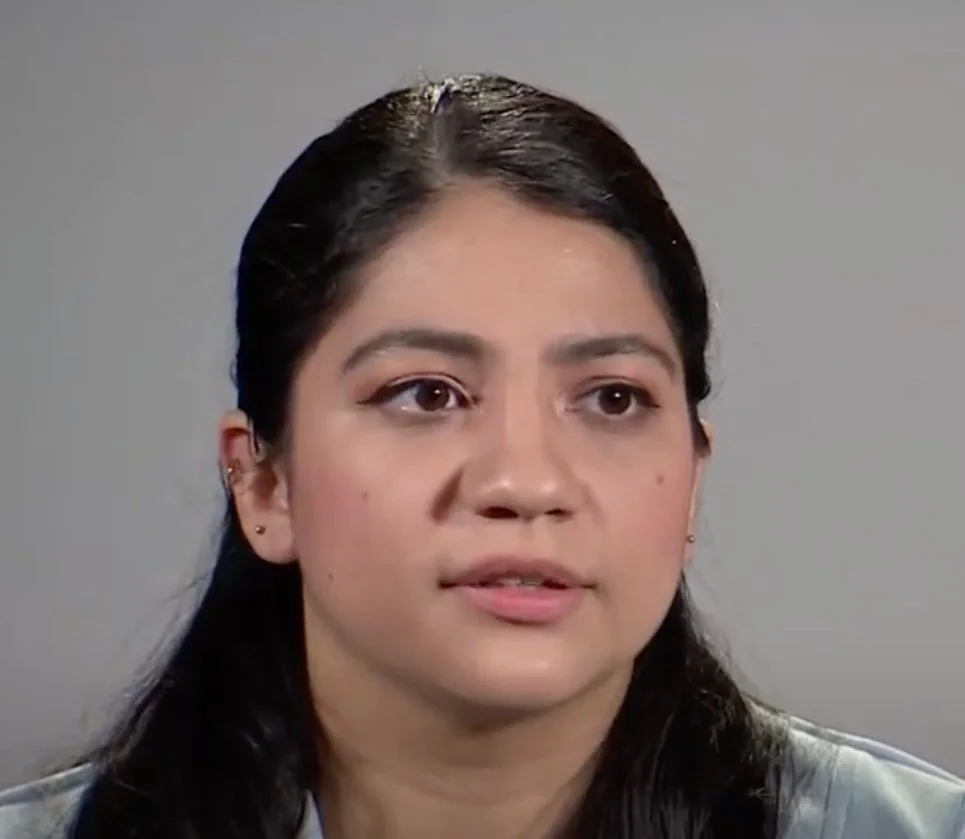
Selena
OVERCOMING ANXIETY AND ENGINEERING HER OWN SUCCESS
Selena graduated with an AS in science in 2016. At the time of this interview, she was majoring in electrical engineering at University of Illinois in Champagne. Selena’s parents grew up in Mexico and did not have access to education; her “big why” for attending college is to honor her father. She also traces her motivation back to a childhood memory, which showed her the importance of education. Selena’s biggest tip for incoming students is to learn about fixed versus growth mindset. Selena speaks highly of the help she got for her test-taking anxiety at the Wellness Center. She also used a number of other resources including office hours and tutoring.
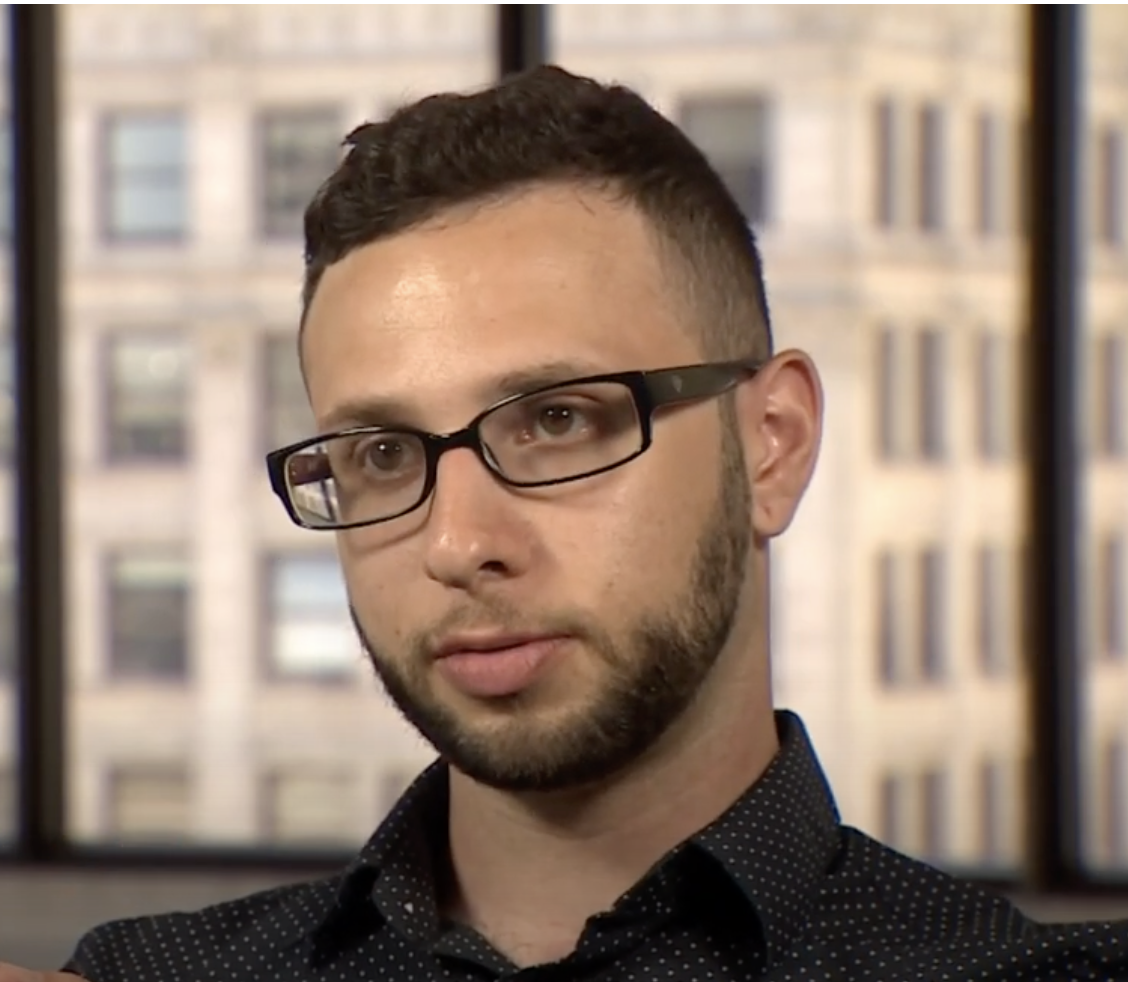
Samer
FROM COMMUNITY COLLEGE TO COLUMBIA UNIVESITY
Samer graduated after summer of 2018 with a concentration in political science and then transferred to Columbia University in New York City. He is both a first-generation college student and a first-generation American. His legal status kept him from attending college right away, but he stayed focused on his commitment to attend school with a plan to eventually get into politics. Samer discusses his struggle with math, and how he overcame this challenge. He utilized the Wellness Center and the Advising Office and highly recommends club involvement to help students build community.
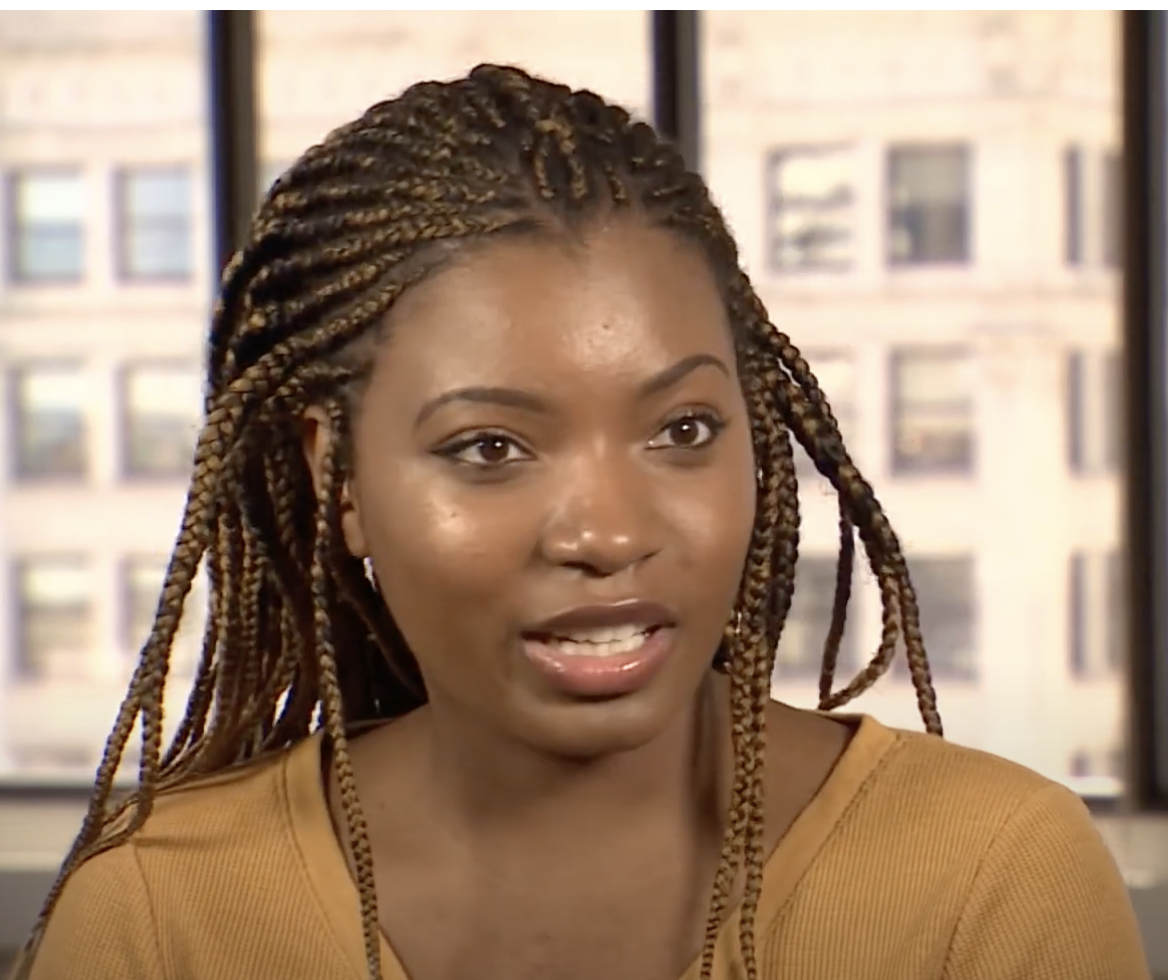
Jazmine
PUSHING THROUGH CHALLENGES AND ASKING FOR HELP
Jazmine graduated in May of 2017 with a concentration in biology. She then transferred to Governor’s State, where she to pursued biology. Her parents did not attend college, but encouraged her to go. She discusses the challenge of her grandfather being diagnosed with cancer, getting over her nervousness about asking for help, and how she overcame a particularly tough class. Supports Jasmine encourages students to use include: tutoring, faculty office hours, and fellow students.

Em
WORKING TO OVERCOME BURNOUT AND SOCIAL ANXIETY ON THE PATH TO AN ENGINEERING DEGREE
Em graduated in 2025 and is transferring to complete their engineering degree. After high school burnout and two years in customer service, they returned to college with a passion for making STEM more inclusive. They’ve relied on professor office hours, the Wellness Center, and the Access Center. Em has found that college has built their confidence and helped them lessen their social anxiety. They speak thoughtfully about both the promise and pitfalls of AI in school and in everyday life including how they use AI to help understand social cues.
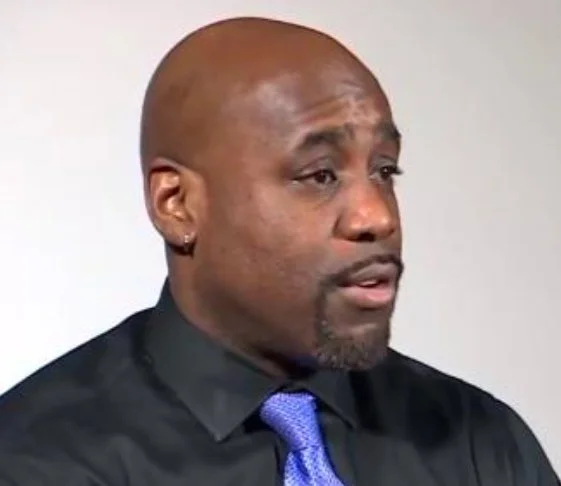
Brandon
FROM DOING ‘EVERYTHING YOU SHOULDN’T DO’ AS A STUDENT TO BECOMING A FACULTY MENTOR
Brandon teaches in the Business Department at Harold Washington College. He is a first-generation college student who attended the University of Missouri and majored in journalism and advertising. Brandon recounts some challenges he had while in college, and reports that his biggest obstacle in college was developing confidence that he belonged there. While a student, he found it extremely important to develop relationships with faculty members. His message to students: “utilize your faculty members.”

Arlin
FROM LANGUAGE BARRIERS AND SELF-DOUBT TO SUCCESS THROUGH DISCIPLINE AND SUPPORT
Arlin graduated with a major in data science in 2025 and is now headed to University of Illinois at Urbana/Champagne. She moved to Chicago from Mexico before high school, and the language barrier was so challenging that neither her nor her parents were sure she would even make it through high school. Her aunt motivated her to continue and now Arlin realizes that going to college and acting as a role model for other students like her has become her biggest motivator. Arlin has faced a lot of self-doubt over her college career but relies on her strong discipline—and willingness to ask for help—to push through.
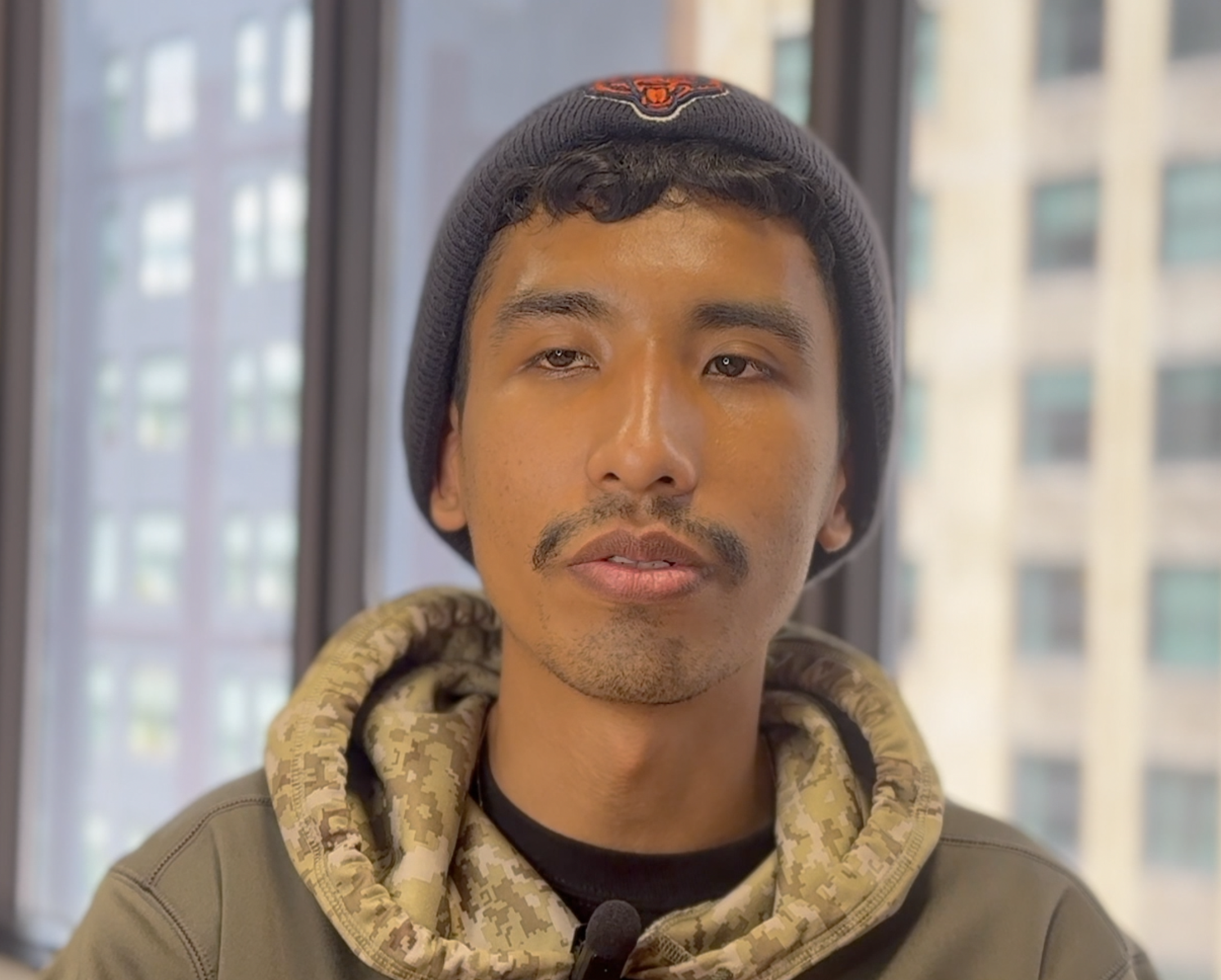
Oscar
BUILDING CONFIDENCE THROUGH CAMPUS INVOLVEMENT AND INTEGRITY
Oscar graduated in 2024, earning his degree in part to honor his parents, who never had the opportunity to attend college. He has since joined the army to see the world and gain new experiences before deciding on his next step. In college, he was initially reluctant to seek help but soon discovered the value of campus resources and now urges students to use them from the start. He made use of tutoring, TRIO, and office hours, and especially enjoyed his role as a campus ambassador—an experience he highly recommends. College, he says, helped him become less shy and more confident; he even briefly served as student government president. He encourages students to focus on truly learning and acting with integrity rather than relying too heavily on AI.

Yvette
GAINING MOMENTUM FROM CHANGING MAJORS AND MAKING FRIENDS
Yvette graduated with a degree in elementary education in 2024 and is now studying urban education at UIC. Yvette originally planned to go into accounting but found that her passion led her to education. She now feels extremely motivated to be a teacher to help other first-generation students like herself. Although she wasn’t originally sure college was for her, it now feels like a perfect fit, even when she has to make sacrifices to prioritize school. She highly recommends that students get to know their peers in class and attend club events to build community on campus.
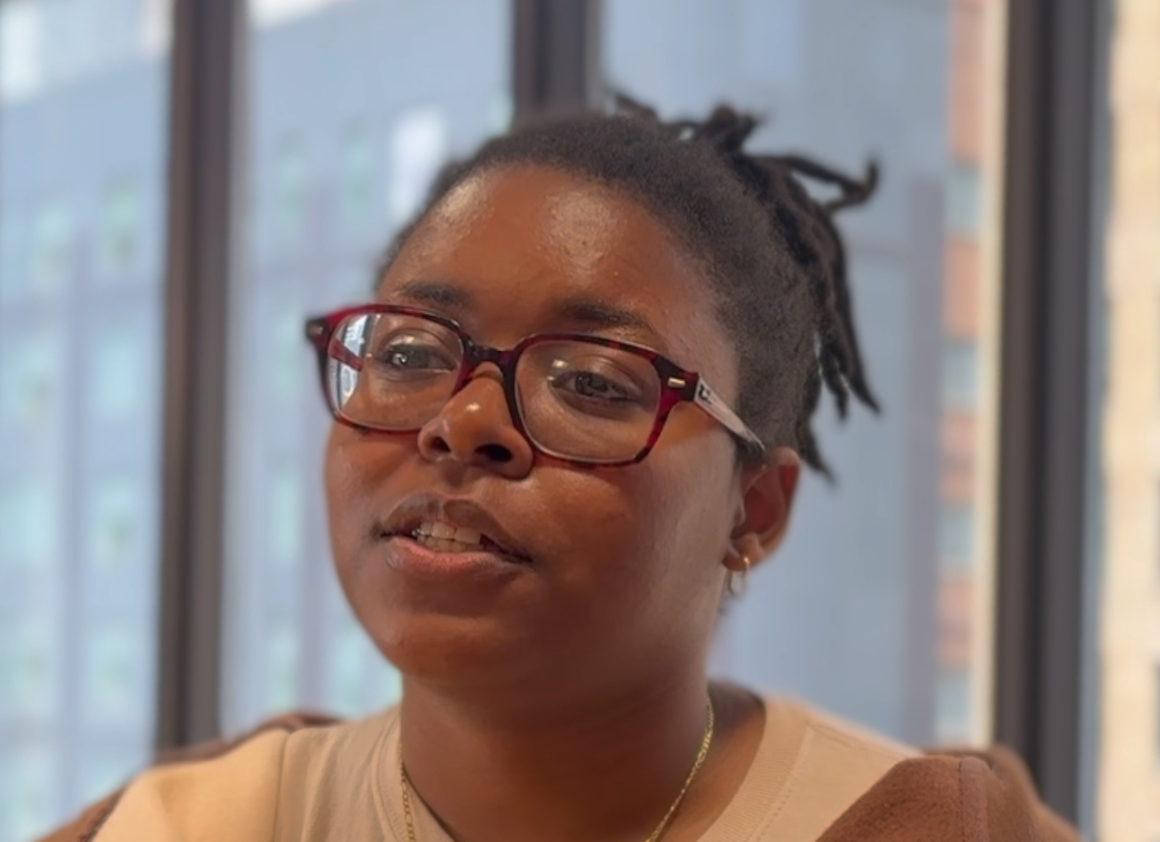
Precious
DISCOVERING THE POWER OF RESOURCES AND SELF-ADVOCACY
Precious graduated in 2025 with an associate degree in business administration and plans to transfer once she hears back about scholarship opportunities. Her first exposure to college came years earlier, when she accompanied her grandmother to classes. Now, her goal is to become an entrepreneur to help communities in need. She reflects on the challenges of transitioning from high school to college. After initially taking on too many classes, she found the rhythm that works best for her and has become skilled at using campus resources, including those that students sometimes overlook. (She shares her tips in this video.) Precious believes college builds resilience and the ability to advocate for oneself.
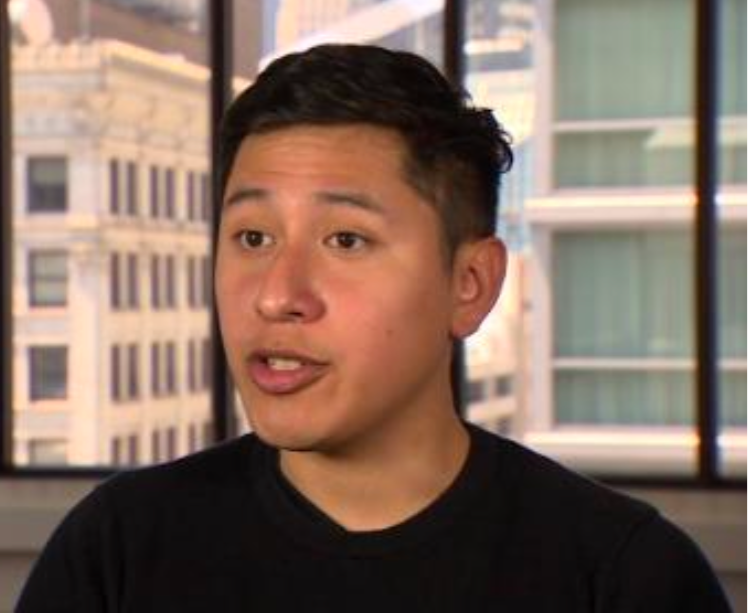
Juan
FINDING BELONGING AND SUCCESS AFTER DROPPING OUT
Juan graduated in Spring 2018 with a concentration in science before transferring to UIC to major in biology. A first-generation college student, he left high school before returning to earn his diploma at an alternative school, then pressed on to higher education. He credits his persistence in college to the strong connections he built through student organizations, as well as the support he found in resources like the Wellness Center, student clubs, and his peers.

Sara
HOW A COMMITMENT TO USING EVERY RESOURCE LED TO SARA’S FIRST A IN MATH AND ACCEPTANCE TO SMITH COLLEGE
Sara graduated in May of 2018 with a concentration in Political Science and transferred to Smith College to study political science and film production. Sara talks about her experience first dropping out of college and then coming back. She provides some ideas for prioritizing time while in school. Sara used a number of supports while in college, including: tutoring, the Wellness Center, faculty, and student clubs.
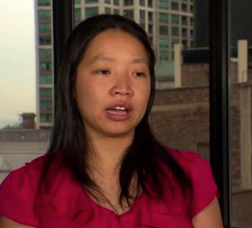
Chunyan
BREAKING EXPECTATIONS AND FINDING HER VOICE
Chunyan graduated in 2017 with an Associate’s in General Studies with the plan to continue at a four-year university. She is a first-generation college student and an immigrant from China. By attending college, Chunyan went against her grandmother’s expectations of women, but feels that the choice to attend college allows her to be independent and build a strong future for herself. She has had some academic challenges since English is not her first language, but has used resources to overcome this challenge including the tutoring center, the Writing Lab, friends, and faculty office hours. She finds faculty office hours to be particularly important because then her teachers know that she cares about her education.
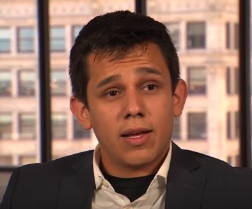
Daniel
BALANCING WORK AND SCHOOL TO GET TO HIS DREAM COLLEGE
Daniel graduated from Harold Washington in 2016 with a concentration in business and entrepreneurship. He is now at Columbia University in New York. Daniel was born in Mexico City and came to the United States when he was eight. Daniel’s biggest challenge was that he worked 30-40 hours a week while in college. At times, prioritizing school meant giving up social time. In order to get into his dream college, Daniel retook some of his courses to raise his GPA. Daniel didn’t use the Wellness Center until he transferred to Columbia. He did however use faculty office hours and club involvement to stay motivated.
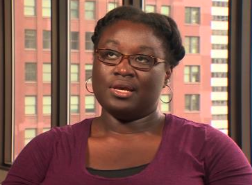
Alexis
FINDING SUPPORT AND A NEW PERSPECTIVE THE SECOND TIME AROUND
Alexis graduated from Harold Washington College in the Spring of 2014 with a concentration in social work. She plans to return to school to get a degree in early childhood education. She is a first-generation college student. After high school, she went away to a four-year college, but ended up dropping out because when she hit an academic obstacle, she didn’t know to reach out to others for support and ended up feeling isolated. When she restarted at the City Colleges, she came with a new perspective and now considers asking for help to be a necessary part of being a successful college student. Alexis found the Writing Lab, and her classmates to be helpful resources.
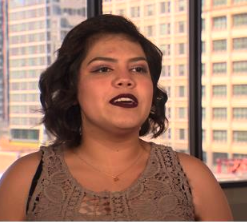
Nancy
OVERCOMING PRIDE AND FINDING SUPPORT
Nancy will graduate from Harold Washington in Spring of 2019 with a concentration in communications. She is a first-generation college student and a first-generation American. She recounts her early struggles: failing a philosophy test, and working to get over her pride to ask her professors for help. But, she explains, she realized that even her most intimidating professor was once a student too. Nancy appreciated the supports at Harold Washington and used the Wellness Center, faculty office hours, student clubs, support from peers, study groups, and other campus resources.